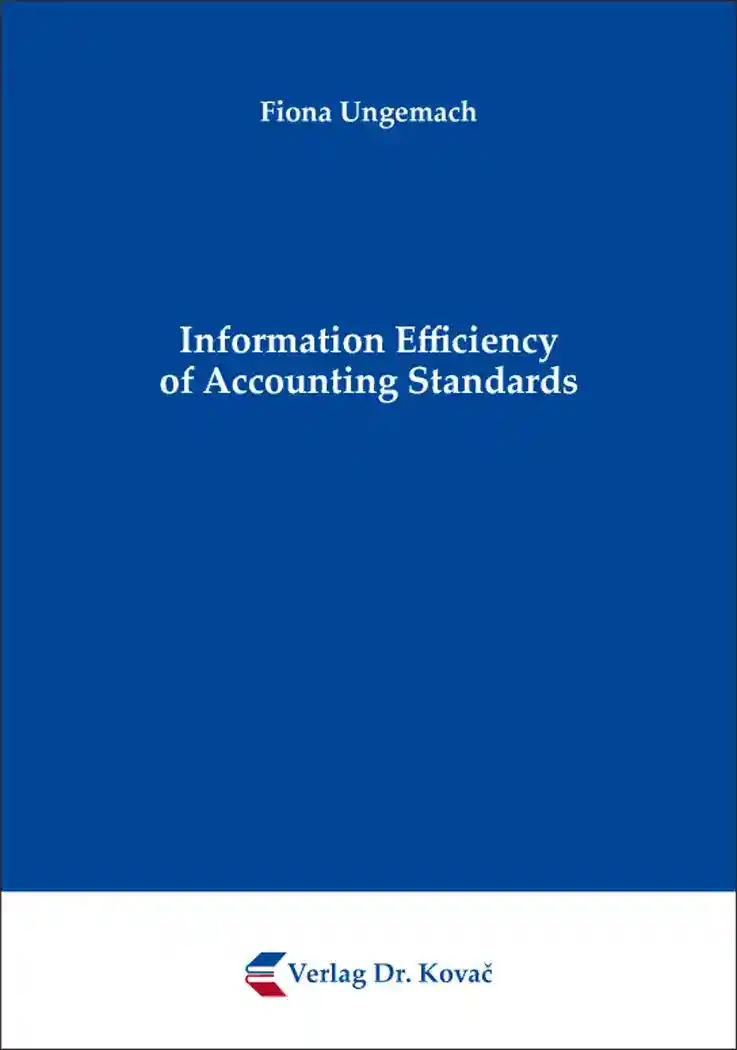Fiona UngemachInformation Efficiency of Accounting Standards
– in englischer Sprache –
Finanzmanagement, Band 124
Hamburg 2017, 234 Seiten
ISBN 978-3-8300-9692-4 (Print)
ISBN 978-3-339-09692-0 (eBook)
Zum Inhalt
The analysis of financial statements plays an important role in performance measurement and equity valuation. Accounting information not necessarily reflects the economic situation of a firm but is subject to regulatory frameworks that make financial statement data difficult to interpret economically. The general accounting principles in combination with discretionary managerial decisions applying the accounting principles involve differences between economic and accounting based values. Therefore, the information efficiency of accounting standards plays a crucial role in assessing the equity value and profitability of firms on the basis of accounting information. With our research we aim to achieve a better understanding of the influence of the accounting standards on financial statement data and on the reliability of accounting based information.
We primarily address the question to which extent accounting based figures provide valuable information that reflects the economic situation of firms, in particular the financial performance and profitability and the equity value. We examine analytically the influence of different accounting regulations (depreciation methods, goodwill accounting methods) on financial statement numbers and accounting based financial ratios in a simplified model of a firm. We focus our analysis on financial ratios that are widely used in forecasting and valuation: the return on capital employed, the return on equity, the price-earnings ratio and the market-to-book ratio. In our analysis of the depreciation methods, we extend previous models considering the influence of leverage in addition to growth and profitability.
We analyze the conditions and (unbiased) accounting rules under which the accounting numbers and accounting-based ratios correspond to the respective economic values. We model different accounting methods combined with additional influence factors and examine if and to what extent the accounting based values deviate from the economic reference values of the firm. In particular, we are interested if and to what extent the bias between economic and accounting based values and ratios is influenced by growth, profitability, leverage and taxes.
Schlagworte
Accrual AccountingBuchhaltungConservative AccountingEconomics of AccountingEgonomic AccountingFinanzanalyseGoddwill AccountingInformation EfficiencyMarket-to-Book RatioNeutral AccountingPrice-Earnings RatioProfitabilityRechnungslegungReturn on Capital EmployedReturn on EquitySteady-State AnalysisIhr Werk im Verlag Dr. Kovač
Möchten Sie Ihre wissenschaftliche Arbeit publizieren? Erfahren Sie mehr über unsere günstigen Konditionen und unseren Service für Autorinnen und Autoren.
